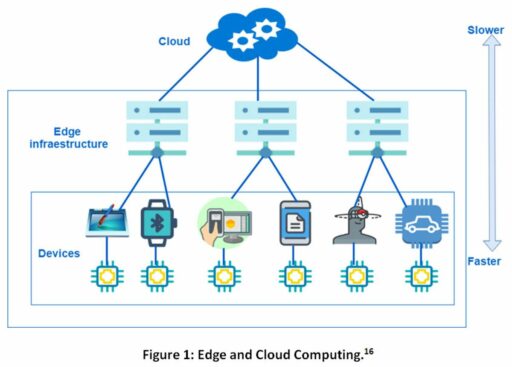Table of Contents
Navigating property data in Tennessee involves understanding the state’s diverse topography, leveraging Geographic Information System (GIS) resources, and comprehending the financial and legal aspects of real estate transactions. This comprehensive guide aims to equip prospective buyers with the knowledge to make informed decisions when purchasing property in Tennessee. From the influence of topographic features on real estate to the role of surveyors in property transactions, this guide covers essential information for a successful property search and purchase.
Key Takeaways
- Tennessee’s varied topography, including its major features, can significantly impact property values and suitability for specific uses.
- GIS data is crucial for property analysis in Tennessee, offering detailed insights into environmental, topographic, and climate-related aspects of properties.
- A systematic approach to house hunting, including understanding market trends and working with the right real estate agent, can streamline the property search process.
- Prospective buyers must navigate the financial landscape of property purchasing, including mortgage rates, down payment assistance, and budgeting strategies.
- The legal and regulatory framework in Tennessee, such as zoning laws and environmental standards, plays a vital role in property transactions and compliance.
Understanding Tennessee’s Topography and Cartography

Key Topographic Features and Their Influence on Property
Tennessee’s diverse topography, from the Appalachian Mountains in the east to the Mississippi River plains in the west, plays a crucial role in property valuation and development potential. The elevation, slope, and landforms can significantly impact construction costs, accessibility, and even insurance premiums.
- Mountains and Hills: Often sought after for their views and seclusion, but may require more investment in infrastructure.
- Valleys and Fields: Typically offer more fertile soil for agriculture and are easier to develop due to flatter terrain.
- Water Bodies: Proximity to rivers, lakes, and streams can enhance property value but may also introduce flood risks.
Understanding the topographic characteristics of a property is essential for making informed decisions. Terrain features not only dictate the type of development that is feasible but also influence the ecological and environmental considerations that must be taken into account.
For instance, properties in the higher terrain areas like mountains and hills may face limitations on construction due to slope stability and soil erosion risks. Conversely, lower terrain areas such as valleys and fields are generally more accommodating for large-scale developments. It’s important for potential buyers to assess these features carefully and consider their long-term implications on property use and value.
Navigating Cartographic Resources for Property Data
In the realm of property data, cartographic resources serve as an indispensable tool for visualizing and understanding the geographical context of real estate. Navigating these resources effectively is crucial for anyone involved in the Tennessee property market.
- University Libraries
- Research Guides
- Tennessee GIS Data and Resources
- Topography & Cartography
These categories encompass a range of materials, including atlases, dictionaries, gazetteers, handbooks, maps, and plans, as well as GIS data and other related material. Most resources are categorized by geography down to the county level, streamlining the search for place-specific information.
The integration of traditional cartographic materials with modern GIS data provides a comprehensive view of the property landscape, enhancing the decision-making process for buyers, sellers, and researchers alike.
Directories of cartographic and GIS libraries, along with comprehensive lists of geospatial datasets, are invaluable for developing a thorough understanding of what materials are available and where they can be found. This knowledge is essential for building a collection of resources tailored to specific cartographic needs in Tennessee.
County-Specific Topographic Considerations in Real Estate
When considering real estate in Tennessee, it’s crucial to understand the diverse topographic features of its 95 counties. Each county presents unique challenges and opportunities, from the mountainous terrains in the east to the flatter river basins in the west.
For instance, Shelby County’s proximity to the Mississippi River may influence flood zoning requirements, while the elevated areas of Sevier County could offer panoramic views that enhance property value.
Here’s a brief overview of topographic considerations by county:
- Shelby County: Flood zones, riverfront access
- Sevier County: Mountain views, slope stability
- Davidson County: Urban topography, infill development potential
- Hamilton County: Ridge-and-valley landscapes, scenic vistas
It’s essential for buyers and sellers to be aware of these topographic nuances as they can significantly impact land use, property value, and legal considerations.
Access to detailed topographic maps and resources, such as the Tennessee Topographic Maps By County Index, can provide invaluable insights into these aspects. Understanding the specific issues related to working with coordinate systems is also important for accurate property assessment and development planning.
The Role of GIS in Tennessee Property Transactions

Leveraging GIS Data for Comprehensive Property Analysis
In the realm of property analysis, Geographic Information Systems (GIS) have revolutionized the way we understand and evaluate real estate. GIS technology integrates various data layers, offering a multifaceted view of properties that goes beyond mere location. For instance, the ArcGIS suite provides tools that bring the science of surface water to life, which is crucial for assessing flood risks and water rights associated with a property.
- Data Integration: Combining topographic, demographic, and environmental data.
- Risk Assessment: Evaluating flood zones, landslide risks, and other natural hazards.
- Market Analysis: Analyzing property values and trends within specific geographic areas.
- Regulatory Compliance: Ensuring properties meet zoning laws and environmental regulations.
By harnessing the power of GIS, stakeholders can make informed decisions, backed by data that reveals the intricate properties of land and its potential. This is particularly valuable in Tennessee, where the topography can significantly impact property value and usability.
The SethT website is an example of a resource that offers content on data topics, including GIS tools, which can be instrumental in property analysis. It’s essential to stay updated with the latest developments in GIS technology and how they can be applied to real estate in Tennessee.
Accessing and Interpreting Tennessee’s GIS Resources
Gaining access to Tennessee’s Geographic Information System (GIS) resources is a pivotal step in conducting thorough property analysis. The state offers a wealth of data through various online platforms, each catering to different aspects of topography and cartography. To effectively utilize these resources, one must understand the types of data available and the tools required to interpret them.
- Quick Data
- GIS Data – Comprehensive
- Elevation
- Environment & Climate
- Geology & Energy
- Water
These categories, among others, provide a structured approach to accessing GIS data. For instance, the ‘Elevation’ category offers detailed topographic maps, while ‘Environment & Climate’ can be crucial for assessing property risks related to natural events.
It is essential to recognize the significance of accurate data interpretation in making informed real estate decisions. Misinterpretation can lead to costly mistakes, particularly when it comes to environmental and zoning regulations.
For a more granular approach, resources like the ‘Tennessee Topographic Maps By County Index’ allow users to drill down to specific areas of interest. Utilizing tools such as the ‘USGS Map Indices Sources FAQ’ can provide guidance on how to navigate and extract the most pertinent information for your needs.
GIS Tools for Environmental and Climate Considerations
In the realm of environmental and climate analysis within Tennessee, Geographic Information Systems (GIS) are indispensable tools. They enable the synthesis of complex data into comprehensible visual formats, aiding in the assessment of environmental resilience and climate-related risks. GIS applications extend from monitoring air quality to managing water resources, each leveraging the technology to provide actionable insights.
For instance, the ArcGIS suite offers a comprehensive set of tools for surface water analysis. Users can employ the National Hydrography Dataset along with the Watershed Boundary Dataset to conduct intricate examinations of water networks. This facilitates operations such as tracing water flow, which is crucial for both conservation efforts and disaster response planning.
The integration of various GIS tools and datasets allows for a multi-faceted approach to environmental challenges, ensuring that decisions are informed by accurate and up-to-date information.
The following table summarizes key GIS resources and their applications in environmental and climate considerations in Tennessee:
| Resource | Application | Example Use Case |
|---|---|---|
| TerraGo Toolbar | Map Annotation | Documenting changes in land use |
| GNIS | Toponymy | Identifying geographic features |
| ColorBrewer | Map Design | Visualizing climate data |
| What3words | Addressing System | Pinpointing locations for disaster response |
Understanding and effectively utilizing these tools can significantly enhance the efficiency of environmental planning and management. As climate considerations become increasingly critical, the role of GIS in property transactions and broader environmental stewardship will only grow more vital.
Step-by-Step Guide to House Hunting in Tennessee

Starting Your Property Search: Tips and Strategies
Embarking on your property search in Tennessee can be both exciting and overwhelming. Begin by setting clear goals for what you want in a home, including size, location, and amenities. Utilize the wealth of online resources available, such as the best house buying websites, to familiarize yourself with the current market and available properties.
When you’re ready to move from online browsing to in-person visits, remember that seeing properties firsthand is crucial. A local realtor can be invaluable in this phase, offering insights into the market and helping you find homes that meet your criteria within your budget. Services like Clever Real Estate can match you with top local agents to streamline this process.
It’s important to stay flexible during your search. Tennessee’s housing inventory has increased, providing more options, but also potentially higher listing prices. Work with your realtor to prioritize your needs and find a balance between your desires and financial constraints.
Lastly, consider the financial aspects early on, such as saving for a down payment and understanding potential home buyer rebates. This preparation will put you in a strong position when you’re ready to make an offer.
Evaluating Housing Inventory and Market Trends
When delving into the Tennessee housing market, it’s crucial to assess the current inventory and understand the prevailing market trends. The recent surge in housing inventory suggests a variety of options for potential buyers, yet the uptick in listing prices necessitates a strategic approach to house hunting, particularly for those adhering to a strict budget.
The following table encapsulates key housing indicators for Tennessee:
| Month | Sales (million units) | Median Price (USD) | Housing Starts | New Home Sales |
|---|---|---|---|---|
| January | 4.00 | $379,100 | 1,331,000 | 664,000 |
*Note: All figures are seasonally adjusted annual rates.
In addition to quantitative data, qualitative aspects such as the Housing Affordability Index and pending home sales also play a significant role in gauging the market’s health. A realtor’s expertise can be invaluable in navigating these complexities, ensuring that you find a property that aligns with both your desires and financial constraints.
As you evaluate the housing inventory, remember that market trends can shift rapidly. Staying informed and adaptable is key to making a sound investment in Tennessee’s dynamic real estate landscape.
Working with Real Estate Agents: Finding the Right Fit
When embarking on the journey of house hunting in Tennessee, finding the right real estate agent is a pivotal step. It’s essential to conduct thorough research and interviews with potential agents, focusing on their experience within your target neighborhoods. Consider the following criteria when evaluating agents:
- Years of experience
- Transaction volume in the past year
- Familiarity with your price range
- Overall review scores
- Detailed individual reviews and complaints
Remember, the best agent for you is one who not only understands the local market but also aligns with your home buying goals and preferences.
Services like Clever Real Estate can simplify the process by matching you with pre-vetted agents from reputable brokerages. By entering your zip code, you can compare agents from brands like Keller Williams and Berkshire Hathaway, ensuring you find an agent that’s a perfect match for your needs. It’s a free, no-obligation service that can be a valuable tool in your agent search.
Lastly, don’t hesitate to explore resources such as the SethT website, which offers insights on various topics, including real estate trends and market analysis. This can further inform your decision-making and help you ask the right questions when interviewing agents.
Financial Aspects of Buying Property in Tennessee

Understanding Mortgage Rates and Financing Options
When considering the purchase of a home in Tennessee, understanding mortgage rates and financing options is crucial. As of February 29, 2024, mortgage interest rates have seen a slight increase to 6.94%, affecting the monthly mortgage payment for a $400,000 home with a 20% down payment to $2,116.
The type of mortgage and the size of your down payment can significantly impact your financial obligations. For instance, a conventional loan may require private mortgage insurance (PMI) until the loan balance drops below 80% of the home’s value. In contrast, FHA loans necessitate a mortgage insurance premium (MIP) for the duration of the loan.
It’s important to weigh the long-term costs of a mortgage, including the total interest paid over the life of the loan, against the immediate benefits of lower down payments.
Here’s a quick comparison of minimum down payments and their effects:
- VA Loan: 0% down, $0 down payment
- FHA Loan: 3.5% down, $10,715 down payment
- Conventional: 3% down, $9,185 down payment
Remember, a smaller down payment means borrowing more money, which leads to higher monthly payments and more interest paid over time. It’s essential to consider both current mortgage rates and the total cost of your loan when planning your finances.
Navigating Down Payment Assistance Programs
Navigating the landscape of down payment assistance (DPA) programs in Tennessee can be a crucial step for many prospective homeowners. Understanding the variety of options available is key to securing the financial support needed for a home purchase.
Tennessee offers several DPA programs aimed at first-time and low-income buyers. For instance, the Tennessee Housing Development Agency’s Great Choice Plus program provides a forgivable 30-year second mortgage of $6,000, with no interest accruing and payments forgiven after the term. Similarly, The Housing Fund extends DPA loans up to $35,000, requiring a minimum contribution of 1% from the buyer.
Eligibility for these programs often hinges on household income, home purchase price limits, and completion of a homebuyer education course. It’s important to note that these criteria can vary by county.
To streamline your exploration of DPA resources, consider the following steps:
- Research available DPA programs in Tennessee, such as THDA Great Choice Plus and The Housing Fund.
- Determine your eligibility based on income, credit score, and county-specific requirements.
- Attend a homebuyer education course if required.
- Apply for the program that best fits your financial situation and homebuying goals.
Budgeting for Your Property Purchase: A Comprehensive Overview
When embarking on the journey of purchasing property in Tennessee, it’s crucial to have a clear financial plan. Budgeting effectively ensures that you are prepared for both the upfront and ongoing costs associated with homeownership. It’s not just about the sticker price; there are various expenses to consider that can impact your overall budget.
To avoid surprises, factor in all potential costs early in the process. This includes lender fees, title and escrow charges, prepaid costs like property taxes and homeowners insurance, and other closing costs.
Here’s a breakdown of some typical expenses you might encounter:
| Expense Category | Description |
|---|---|
| Lender Fees | Fees for loan preparation, appraisals, and surveys. |
| Title and Escrow Charges | Costs for title search and closing facilitation. |
| Prepaid Costs | Upfront payments for taxes and insurance. |
| Other Closing Costs | Miscellaneous fees, such as attorney fees. |
Remember, these are just a few examples of the costs you’ll need to budget for. Each property transaction is unique, and additional expenses may arise. By planning ahead and understanding the financial landscape, you’ll be better positioned to navigate the complexities of buying property in Tennessee.
Legal and Regulatory Framework for Tennessee Properties

The Role of Surveyors in Property Transactions
Surveyors play a pivotal role in ensuring the accuracy and legality of property transactions. Their expertise in delineating property boundaries is essential for preventing disputes and establishing clear land tenure. The integration of historic survey principles with conditions on the ground forms a legally-sound defense for boundary locations, which is a critical component of any land-related project or transaction.
Surveyors’ work involves interpreting land records, which can be complex due to historical methods and potential issues such as lost or corrupted records. Their ability to navigate these challenges is invaluable for maintaining the integrity of property data.
Professionals involved in land transactions, including surveyors, real property attorneys, and title professionals, must have a comprehensive understanding of the interrelationship between cartography, legal infrastructure, and land tenure. The advent of georeferenced cadastral maps has further emphasized the importance of surveyors in the modern real estate landscape. Below is a list of key responsibilities of surveyors in property transactions:
- Interpreting historical land records and documentation
- Correlating survey data with physical conditions on the ground
- Resolving boundary disputes and providing a defense for boundary locations
- Assisting with the creation and maintenance of georeferenced cadastral maps
Surveyors also contribute to the educational foundation for those involved in land transactions by providing resources on basic legal concepts and special terms related to surveying, despite the absence of mathematical complexity in these topics.
Comprehending Zoning Laws and Building Regulations
Understanding zoning laws and building regulations is crucial for anyone looking to purchase property in Tennessee. Zoning laws dictate how a property can be used, whether for residential, commercial, or industrial purposes, and may significantly impact your property’s value and potential. Building regulations ensure that structures are safe and adhere to standards that protect the community.
- Residential Zones: Typically allow for single-family homes, duplexes, and sometimes small multifamily buildings.
- Commercial Zones: Designed for businesses, ranging from small shops to large offices and shopping centers.
- Industrial Zones: Reserved for manufacturing and industrial use, often with greater allowances for noise and emissions.
- Agricultural Zones: Intended for farming and related activities, with restrictions on non-agricultural development.
It’s essential to verify the zoning classification of a property before making a purchase to avoid any future legal or regulatory issues.
Local building codes, on the other hand, cover a wide range of construction standards including fire safety, structural integrity, and accessibility. Compliance with these codes is not just a legal requirement but also a matter of ensuring the longevity and safety of your investment. Before proceeding with any construction or renovation, it’s imperative to consult with local authorities to understand the specific requirements that apply to your property.
Ensuring Compliance with Environmental and Health Standards
Ensuring compliance with environmental and health standards is crucial when acquiring property in Tennessee. Prospective property owners must navigate a complex web of regulations to ensure their future homes or commercial spaces meet the necessary criteria. This not only protects the owner’s investment but also safeguards the community and natural habitats.
- Familiarize yourself with local environmental laws and health regulations.
- Conduct thorough inspections and environmental assessments.
- Engage with certified professionals for compliance verification.
It is essential to consider the long-term environmental impact of your property purchase, as well as the immediate health and safety concerns.
Failure to comply can result in significant fines and legal challenges, not to mention the potential for negative impacts on the property’s value and on the environment. It is advisable to invest time and resources into understanding these standards before finalizing any property transaction.
Conclusion
Navigating the intricate landscape of Tennessee property data can be a complex endeavor, but with the comprehensive guide we’ve provided, you’re now equipped with the knowledge to confidently explore the topography and cartography of the region. From understanding the nuances of Tennessee’s diverse terrain to leveraging GIS resources for informed decision-making, this guide serves as a valuable tool for anyone involved in real estate, surveying, or simply interested in the geographical makeup of the state. Remember, whether you’re house hunting, researching for academic purposes, or planning development projects, the key is to utilize the wealth of data available and seek expert advice when necessary. With the right approach and resources, you can unlock the full potential of Tennessee’s property landscape.
Frequently Asked Questions
What are some key topographic features of Tennessee that can influence property selection?
Tennessee’s topography is characterized by features such as the Great Smoky Mountains, the Cumberland Plateau, and the Mississippi River plains. These features can influence property selection by affecting factors like elevation, climate, and accessibility.
How can I navigate cartographic resources to find property data in Tennessee?
You can navigate cartographic resources by visiting the Tennessee GIS Data and Resources website, which offers comprehensive GIS data including topography, environment, transportation, and more. Utilize tools like the libguides.utk.edu/tngis to access a variety of maps and databases.
Are there specific GIS tools that can help with environmental and climate considerations for Tennessee properties?
Yes, Tennessee offers GIS tools that provide data on environment and climate, such as flood zones, soil composition, and vegetation, which are crucial for assessing property suitability and risk.
What should I prioritize when starting my property search in Tennessee?
When starting your property search, prioritize your ‘must-haves’ such as location, budget, and specific home features. Consider working with a real estate agent who has local knowledge and can guide you through market trends and inventory.
How can I find a great real estate agent in Tennessee?
To find a great real estate agent in Tennessee, interview multiple agents to assess their experience in your target neighborhoods and price range. Look for someone who communicates effectively and understands your needs.
What are some financial considerations when buying property in Tennessee?
Financial considerations include understanding mortgage rates, exploring down payment assistance programs like those offered by HUD, and budgeting for your purchase, taking into account property taxes and insurance costs.





